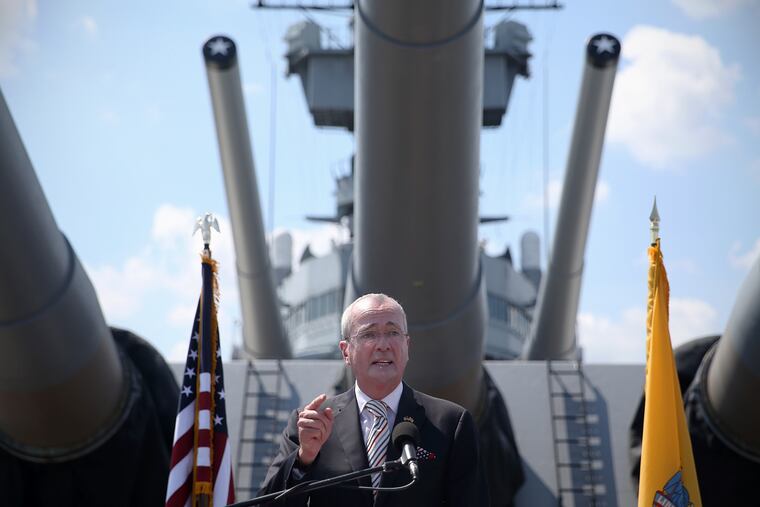Gov. Murphy vetoes controversial N.J. tax break legislation, suggests revisions
The legislation would have extended New Jersey's controversial program of corporate tax incentives into next year.

New Jersey Gov. Phil Murphy on Friday conditionally vetoed legislation that would have extended the state’s controversial corporate tax-incentive programs into 2020, saying it would have continued “handouts to connected companies.”
The Democratic-controlled Legislature voted overwhelmingly in June to renew the $11 billion programs through January 2020, despite the governor’s veto threat.
Murphy returned the bill to lawmakers with a 143-page veto message with suggestions for a rewrite. The language essentially echoes his proposal for changes to the incentive programs last year, which the Legislature rejected.
“The program I’ve outlined in the conditional veto is one that creates good jobs and works for everyone, not just the connected few," Murphy said. He wants the tax credits capped at $400 million and confined to certain fast-growing industries.
The state has awarded billions of dollars in tax incentives through the state’s Grow NJ and Economic Development and Growth (ERG) programs, which expired July 1.
The governor’s veto is the latest salvo in the Trenton feud over tax credits for businesses. A special task force Murphy appointed in January has been investigating the state Economic Development Authority’s administration of the programs, as well as companies that have been awarded tax breaks.
The task force says it has identified $500 million in questionable incentives, including Camden projects with ties to South Jersey Democratic power broker George E. Norcross III.
Norcross sued Murphy in May, alleging the task force was formed unlawfully and had deprived him of due process rights. A Superior Court judge dismissed the lawsuit last month; Norcross is appealing the ruling.
The task force wrote in a June report that the incentive programs, overhauled in 2013 under Gov. Chris Christie, had been revised at least in part by Parker McCay, a law firm whose CEO is Norcross’ brother Philip. The law made several changes that appeared designed to benefit the firm’s clients, the report said.
Parker McCay and its clients, including George Norcross’ insurance brokerage, have denied wrongdoing.
A grand jury convened by the state attorney general is investigating the tax break programs.
Norcross allies in the Legislature, as well as elected officials in Camden, have tried to discredit the task force inquiry as an attack on the city.
Lawmakers said at the time that the extension would give them time to conduct hearings on the issue and debate proposed changes. Without corporate tax breaks, they warned, the high-cost state would become even more hostile to businesses.
The Legislature could override Murphy’s veto with a two-thirds majority vote in each house. Practically, though, the governor has broad sway over the Economic Development Authority, so any project it approves would be unlikely to move forward without his support.